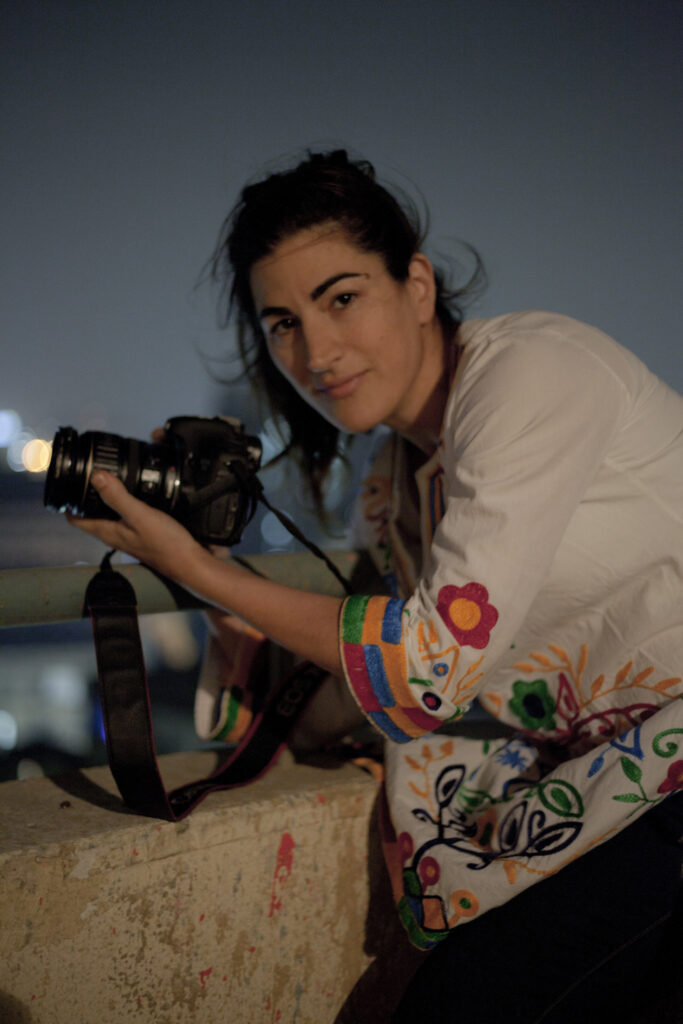
Although female names among the incessant list of filmmakers in a male-dominated industry seem as scarce as hen’s teeth, there are quite a few females in the documentary filmmaking landscape who are thriving and have produced some magnificent work throughout the years; one of whom is Egyptian/American filmmaker Jehane Noujaim. Born in Washington D.C. in 1974 to an Egyptian father and an American mother, she was raised in Kuwait and Egypt until her family moved to Boston in 1990, where she later graduated Magna Cum Laude in Visual Arts and Philosophy from Harvard. Before graduating however, she was awarded the Gardiner Fellowship for her film Mokattam, an Arabic film she directed about a garbage-collecting village near Cairo. This was the precedent for a long and successful career directing and producing many films in the Middle East and the U.S in an attempt to create a day where the power of film could bring a global community together; allowing a new understanding of one another. The following are four of Noujaim’s most notable documentaries with which you should get well-acquainted.
1. Startup.com (2000)
This film follows childhood friends and co-founders of a dot-com start-up, govWorks.com, Kaleil Tuzman and Tom Herman, during the troubled state of the Internet revolution. It uses an intimate and dynamic cinema-vérité style in personalizing the crisis through intensely private views of those involved and tells a classic story about values and friendship during the dawn of the Internet Age. The film was shot over two years on digital video and required over 400 hours of video editing—right up until its premiere at the 2001 Sundance Film Festival. Along with a nomination for the Grand Jury Prize at the festival, the film also won Outstanding Directorial Achievement in Documentary at the Directors Guild of America in 2002, among many others.
2. Control Room (2004)
This feature documentary provides a behind-the-scenes look at the Arab news network, Al-Jazeera, as it covered the 2003 invasion of Iraq. Including interviews with military officials and both American and Al-Jazeera journalists, this film showcases the huge gap in understanding that exists between the Arab world and Americans, and the way events relating to the war have taken on significantly different meanings, weight and emotional import. Through this, it essentially asks the big question of whether America is radicalizing or stabilizing the Arab world. Among the film’s seven wins and eight nominations, it was awarded the coveted TED prize in 2006. Noujaim was the first woman and the youngest person to win the prize, which grants winners a wish to change the world.
3. Rafea: Solar Mama (2012)
This co-directed documentary with Mona Eldaief follows Rafea, a Jordanian woman from one of the country’s poorest desert villages, Bedouin, as she leaves her 4 daughters and husband to study solar engineering at the revolutionary Barefoot College in India. The college teaches rural men and women—many of whom are illiterate—to become engineers, doctors and artisans with only 2 requirements for enrollment —you must be poor and you must take what you learn to your home village. The challenges Rafea faces are ongoing, with many of the men back home (including her husband) intervening and unconvinced of her ambitions as a practical avenue for women, but her desire for a better, more sustainable future remains clear. The documentary won a U.S. Cinema Eye Honors Award in 2014 and the EDA Award at the Sheffield International Documentary Festival in 2013.
4. The Square (2013)
This film follows a handful of Tahrir Square protesters through a 3-year course of Egypt’s political upheaval since 2011. An intimate observational documentary, it begins in the tents of Tahrir in the days leading up to Mubarak’s fall and follows the life-changing journeys of its characters as they begin the real struggle with the military regime—one that has been in power longer than the dictator they removed. The film had over 1600 hours worth of material that was edited and finalised in 2012. But after entering the Sundance Film festival a year later and winning the Audience Award, Noujaim and her crew went back to Tahrir to keep shooting after the situation on the ground had changed and the characters found themselves in the thick of things once again. As a result, the film became an even deeper and more complex story, receiving an Academy Award nomination and winning a Directors Guild Award, the International Documentary Award and an Audience Award at the Toronto Film Festival—making it the first ever film to win the award at both Sundance and Toronto.
[su_note]Learn more about the School of Documentary Filmmaking at the New York Film Academy by clicking here.[/su_note]

